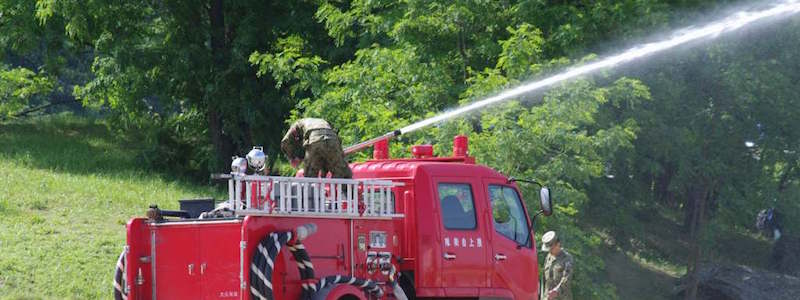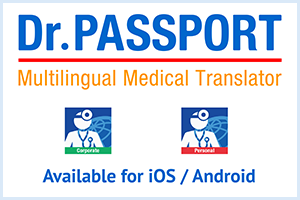Although Japan is modern and safe, it is always useful to be prepared. This chapter provides some background information and useful references for essential services and emergencies.
Table of Contents
In Case of Emergency
Call the following numbers in case of an emergency. (Toll-free)
- 119: Sudden sickness or injury / in case of fire
- 110: When you need a police officer immediately
- #7119: When you are not sure if you should call an ambulance
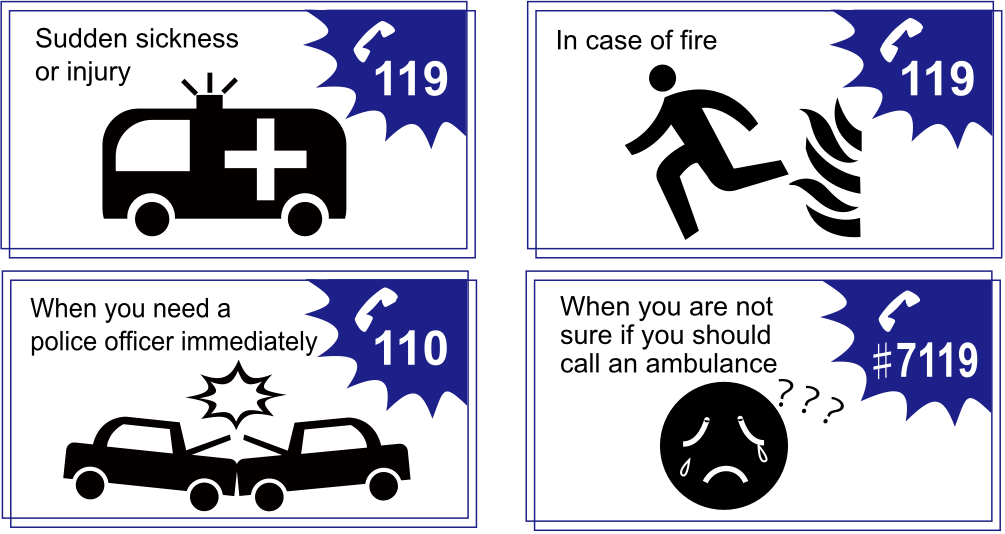
Making an emergency call from a public phone
In the event of an emergency such as sudden sickness, fire, accident or crime involvement, please dial the emergency numbers for help. Even with public phones, you can call these numbers for free. Ambulances and fire engines are free of charge.
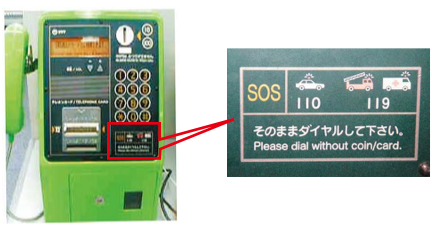
Koban
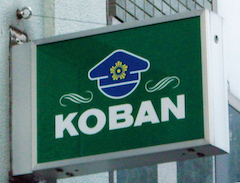 A Koban (交番, local police box), is a small building where police officers are stationed 24 hours a day. The work of the police officers in a Koban includes, but is not limited to, patrolling the area, dealing with accidents/incidents, filing reports of lost and found property and giving directions.
A Koban (交番, local police box), is a small building where police officers are stationed 24 hours a day. The work of the police officers in a Koban includes, but is not limited to, patrolling the area, dealing with accidents/incidents, filing reports of lost and found property and giving directions.
| Operator: | Shōbōshoū desu. Kaji desu ka? Kyūkyū desu ka? This is the Fire Department. Is this a fire or a medical emergency call? |
| You: | Kyūkyū desu. There is a medical emergency. / Help. |
| Operator: | Doushimasitaka? What is wrong? |
| You: | Kega wo shimashita. I have injured myself. |
| Operator: | Nani-ku, Nani-cho, Nan-ban, Nan-go desuka? What is your address? |
| You: | xx ku xx chome xx ban x gou xxx biru (manshon) x goushitsu My address is (insert your address) |
| Operator: | Denwa bangō wa? What is your phone number? |
| You: | xxxx xxxx desu. My phone number is xxxx xxxx. |
Other expressions for your symptoms
- Kōnetsu ga arimasu. (I have a fever.)
- Kazoku ga taoremashita. (A family member (daughter/father etc.) has collapsed.)
- Ishiki ga arimasen. (They are (he/she is) not responding.)
- Kōtsūjiko ni aimashita. (It is a car accident.)
- Yakedo wo shimashita. (I have burnt myself.)
